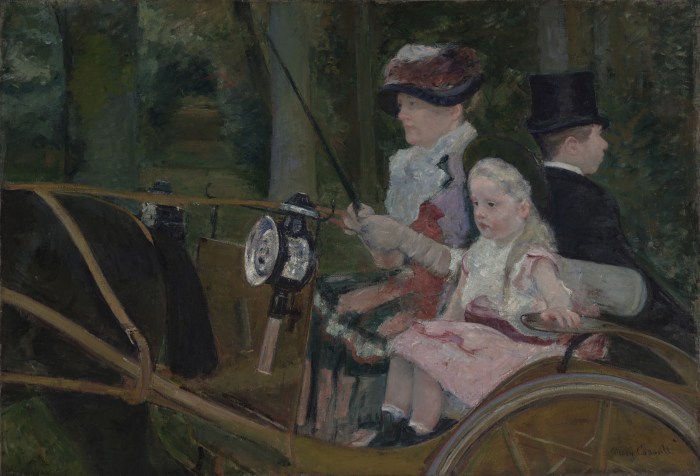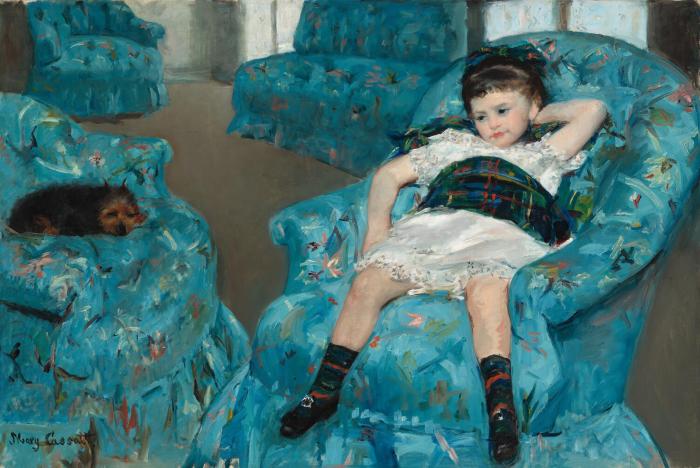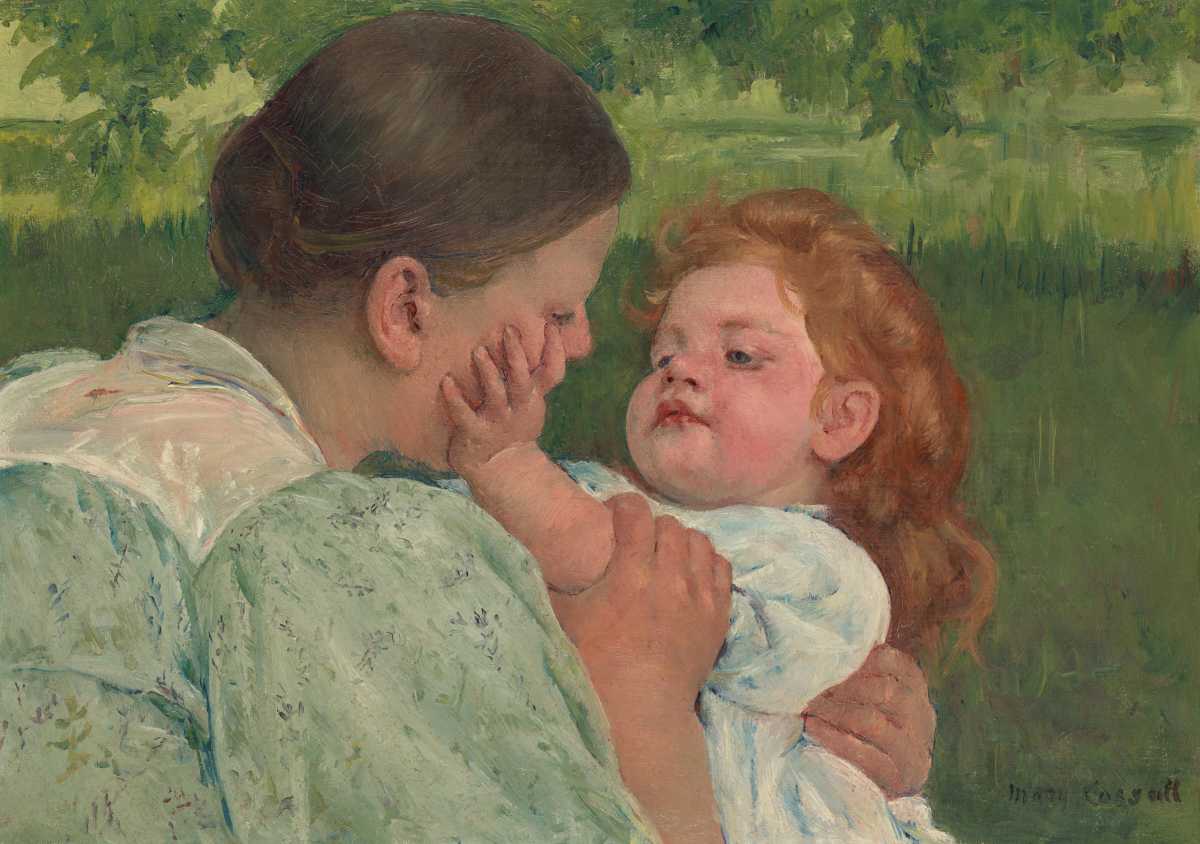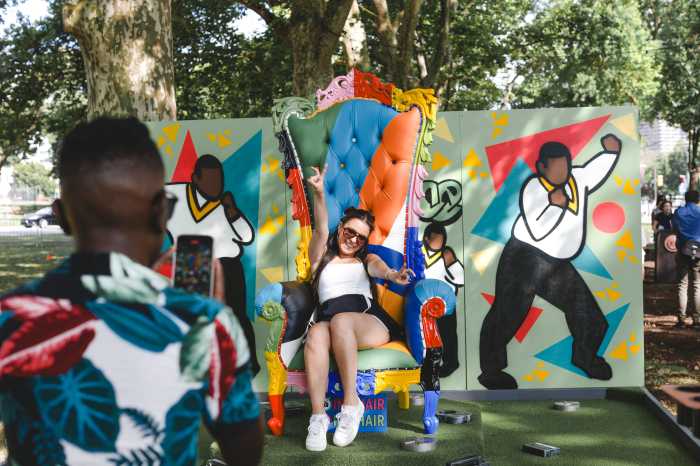Impressionist artist Mary Cassatt was revolutionary in her depiction of females forging forward.
Portraits of women busy as mothers, as intellectual thinkers and smart conversationalists, as busy laboring professionals, Cassatt was surely one of the fine art world’s first feminist focused on agency beyond the norm.
Cassatt (1844 to 1926) was long aligned with the important school of French Impressionist painters. Her goals of challenging convention started in Allegheny, Pennsylvania, where she was born, and wind their way through Philadelphia institutions such as the Pennsylvania Academy of Fine Arts, where she was a student.
In the first major retrospective showing of her life’s mission in over 25 years, the Philadelphia Museum of Art’s ‘Mary Cassatt at Work‘ exhibition – running now through Sept. 8 – studies the painter and printmaker’s quickly developing evolution (and secret female coding) in its series of nearly 140 pastels, paintings and prints, co-curated by Jennifer Thompson.

The Philadelphia Museum of Art’s Stir restaurant and other local dining spaces are celebrating Cassatt as well, by hosting afternoon teas — a nod to the fact that so much of the painter’s stirring, socially aware work is dedicated to the “woman as host” as a key function of society. But rather than rely on the tea as a function of class, high or low, Cassatt’s women are mindful and busy, sometimes deep in conversations whose subjects’ importance we may never truly be certain, but can trust turned heads and changed minds.
Go further, and peruse the diverse entirety of ‘Mary Cassatt at Work‘, and the idea of work and labor itself — of women doing it for themselves, caring for children, reading for the sake of education and knowledge, driving carriages, working as nurses and nannies — is a calling, something chosen and not forced, a series of vocations and desires for the independent minded female of her time.
Cassatt’s mothers are proud to be mothers as an extension of who they are at their very core. Present-day intellectuals and authors such as Judith Barter and Harriett Chessman believe that Cassatt’s most lovingly maternal paintings and prints (a best example is Breakfast in Bed from 1847, where you can witness a relaxed, attentive mother-and-child bond) were a subtle, sensuous way of expressing a woman’s empowered sexuality at a time when such display would have been considered unseemly from a female artist.

What’s even more fascinating about Cassatt’s ‘Work’, is that her female children – just like their mothers – come across as precocious and always thinking, even in repose. Take, for example, Little Girl in a Blue Armchair from 1878. This tiny kid isn’t just sitting around, at play or just staring at that dog in the seat across from her – her mind is busy, her eyes’ darting, refusing to be bored by her elders or the doldrums of adulthood.
The impact of Cassatt’s painting was remarked upon nearly 100 years later by 20th century feminist Germaine Greer when she said, “As an icon of the awfulness of being at once controlled by adults and ignored by them, this bold work could hardly be bettered.”
Audiences who attend the PMoA’s ‘Mary Cassatt at Work’ exhibition can marvel at her brightly clouded colors, her well-studied scenes of domesticity and the many cases of tender embrace that the artist nobly captures. They can also read between the lines and witness some of the earliest, subtlest displays of female liberation and empowerment known to fine art.
‘Mary Cassatt at Work’ is on display at the Philadelphia Museum of Art now through Sept. 8. For tickets and information, visit philamuseum.org

































